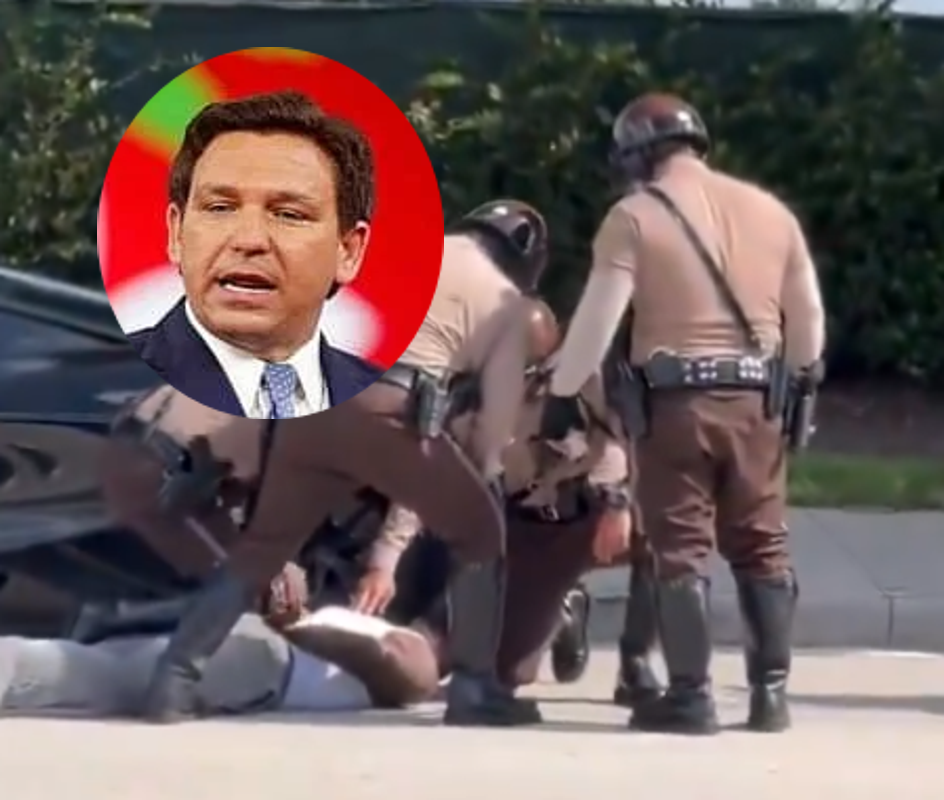Florida Governor Ron DeSantis has built his political platform around a tough-on-crime, anti-woke culture agenda, claiming it’s necessary to protect the state’s values and maintain order. Yet, incidents like the recent detainment of Miami Dolphins wide receiver Tyreek Hill raise serious questions about whether these policies inadvertently encourage systemic racism and excessive force in law enforcement.
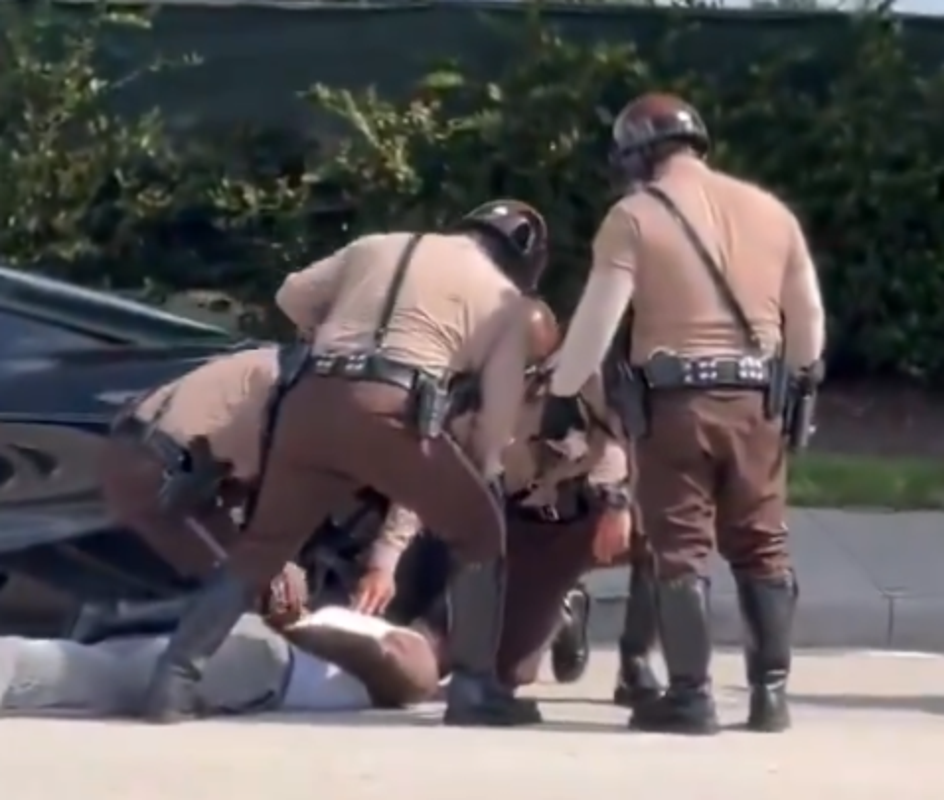
Hill, a star NFL player, was pulled over by Miami-Dade police just hours before a game against the Jacksonville Jaguars. He was cited for reckless driving and driving without a license. However, what should have been a routine traffic stop escalated into a troubling encounter. Video footage shows Hill surrounded by four white officers, one of whom placed a knee on his back as Hill lay handcuffed on the ground. This use of force for what was a minor infraction is deeply concerning, particularly when considered in the context of Florida’s “law and order” policies.
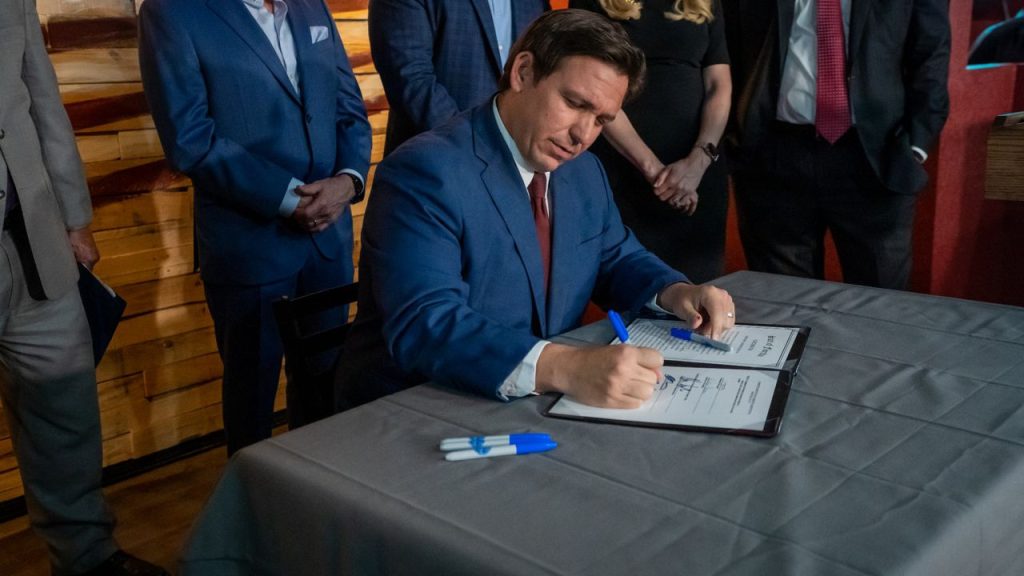
DeSantis has championed policies that embolden police officers, including legislation protecting law enforcement from lawsuits and efforts to limit local control over police budgets. While these measures are presented as supporting law enforcement in the face of rising crime, they may also foster an environment where officers feel empowered to use excessive force, especially when dealing with minorities. Tyreek Hill, who was cooperative and respectful throughout the incident, expressed confusion as to why the situation escalated to the point where he found himself handcuffed on the pavement. “What if I wasn’t Tyreek Hill?” he asked after the game, pointing out that his fame and status may have spared him from a more severe outcome. Hill’s question is crucial. For everyday Black citizens, these encounters often result in more severe consequences—violence, trauma, or worse.
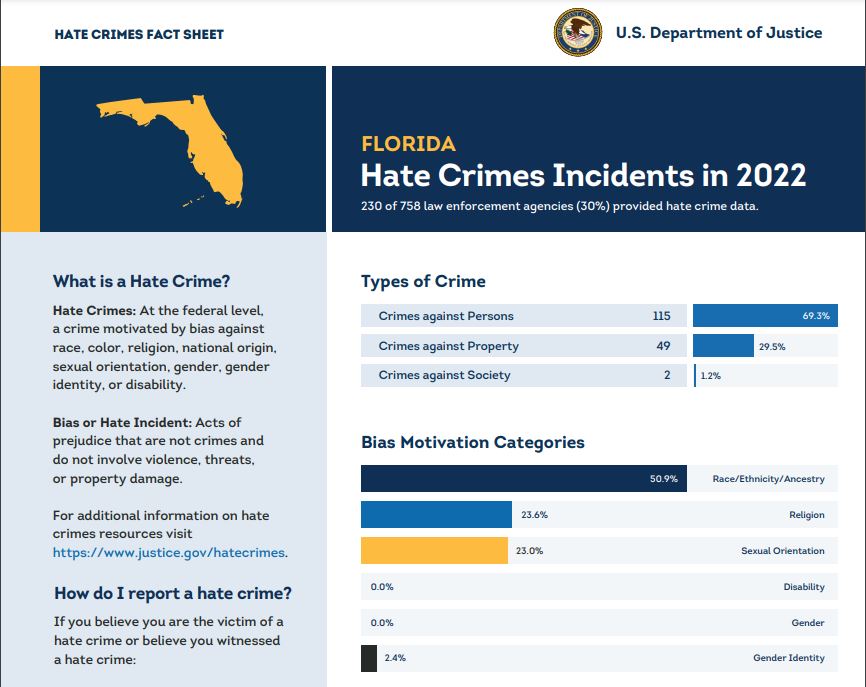
The increase in hate crimes under Desantis in Florida is evident in data provided by the DOJ. Florida has seen an uptick in incidents where Black and Brown individuals are subjected to harsher treatment by law enforcement compared to their white counterparts. The sight of four white officers detaining a Black man for a minor traffic violation sends a chilling message about the racial bias that still permeates the criminal justice system. Under the guise of cracking down on crime and maintaining order, DeSantis’ policies may be giving implicit permission for racially biased policing to flourish.
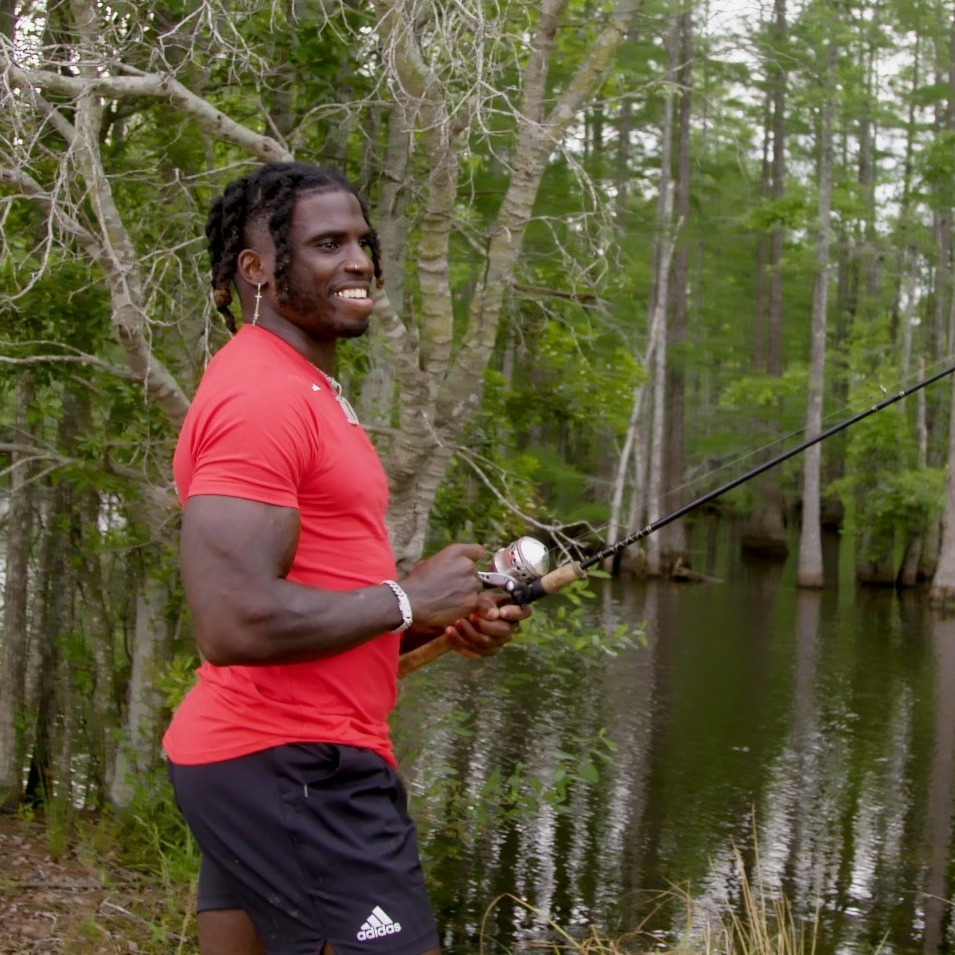
Hill’s case echoes the experiences of countless Black men who have been stopped, searched, or arrested for minor infractions, only to face a disproportionate response from law enforcement. As Hill lay handcuffed on the ground, his experience mirrored the grim reality faced by many minorities in Florida and beyond, a reality where Blackness is often criminalized by default.

Governor DeSantis’ tough stance on crime and his opposition to so-called “woke” ideologies, including racial justice movements, sends a clear signal: resistance to any reform that seeks to address systemic racism. Instead of working to foster trust between law enforcement and communities of color, his policies may be deepening the divide.
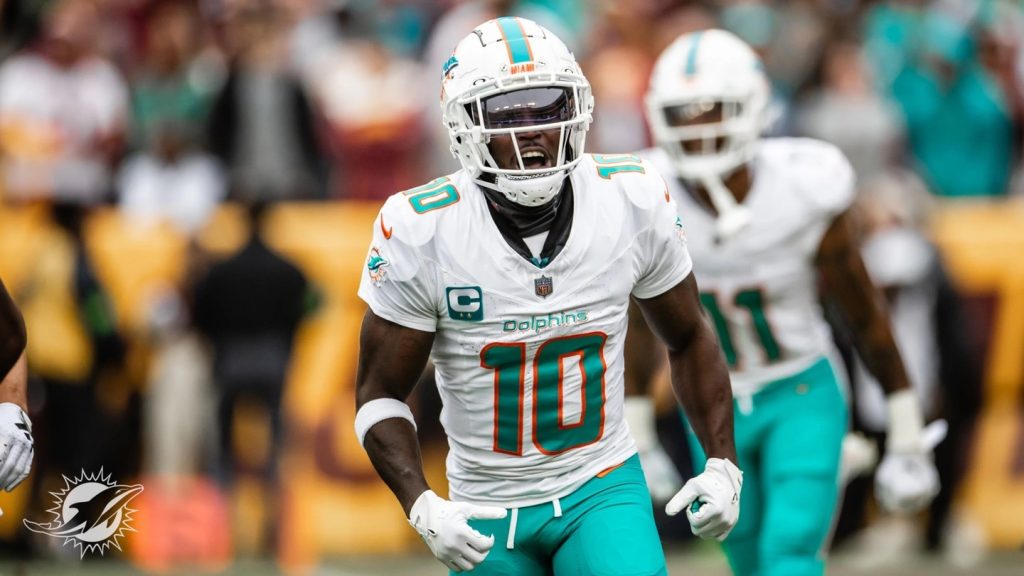
When Hill said he wants to use his platform to create positive change, he wasn’t just talking about sports. He was pointing to the systemic issues plaguing Florida’s criminal justice system under DeSantis’ watch. Hill is respected, cooperative, and well-known, yet even he was not immune to the overzealousness of law enforcement—a reality far worse for those without his visibility or resources.
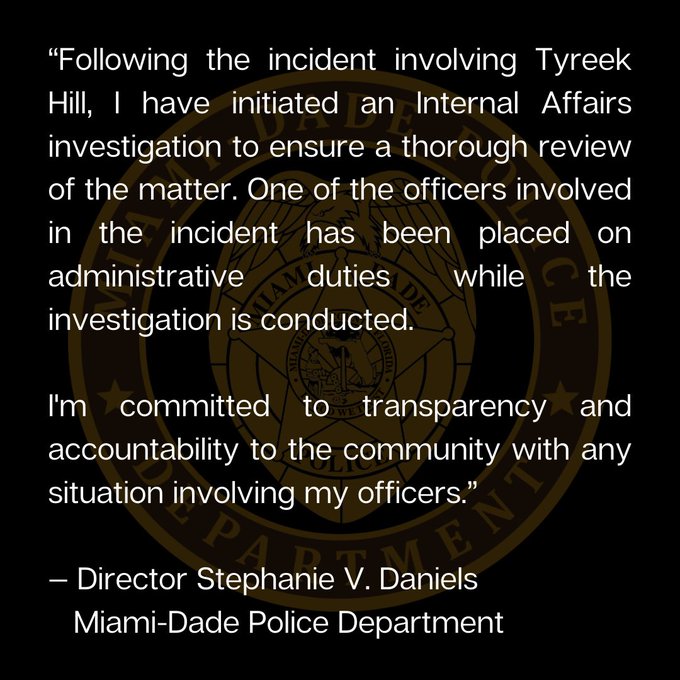
The Miami-Dade Police Department has placed the officer involved on administrative leave and is reviewing body camera footage. However, this response feels reactive rather than proactive. When officers feel empowered to use excessive force for minor infractions, systemic problems are at play. Florida’s “law and order” agenda under DeSantis must be reexamined if true justice is to be achieved.
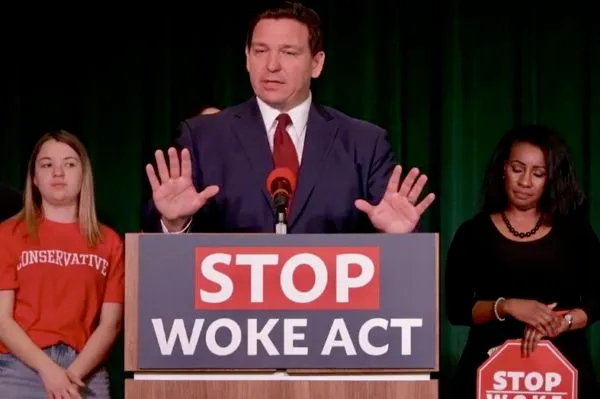
While Governor DeSantis continues to rally against the so-called “woke” culture, incidents like this highlight a darker side of his policies. Law enforcement, emboldened by political rhetoric that undermines accountability, may feel empowered to act on racial bias, treating Black citizens as inherently suspicious. Tyreek Hill’s detention is not an isolated incident but part of a larger pattern of racial profiling that persists in Florida and throughout the nation.

As the state of Florida continues to grapple with these issues, it’s important to remember Hill’s poignant question: “What if I wasn’t Tyreek Hill?” The answer may reveal a troubling reality for minorities in DeSantis’ Florida, one where “law and order” too often translates into racial injustice.
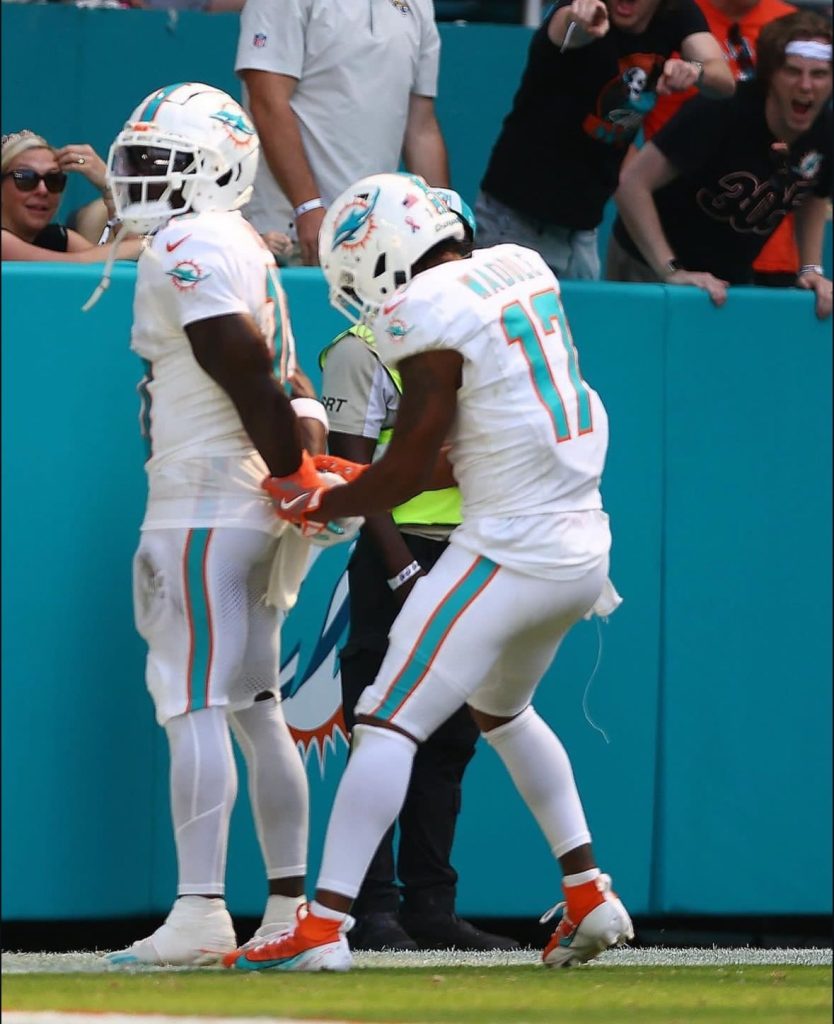
Despite the incident, the Dolphins went on to defeat the Jaguars 20-17. Hill finished with seven catches and 130 yards. After an 80-yard touchdown reception, Hill appeared to pretend to be handcuffed during an endzone celebration.

